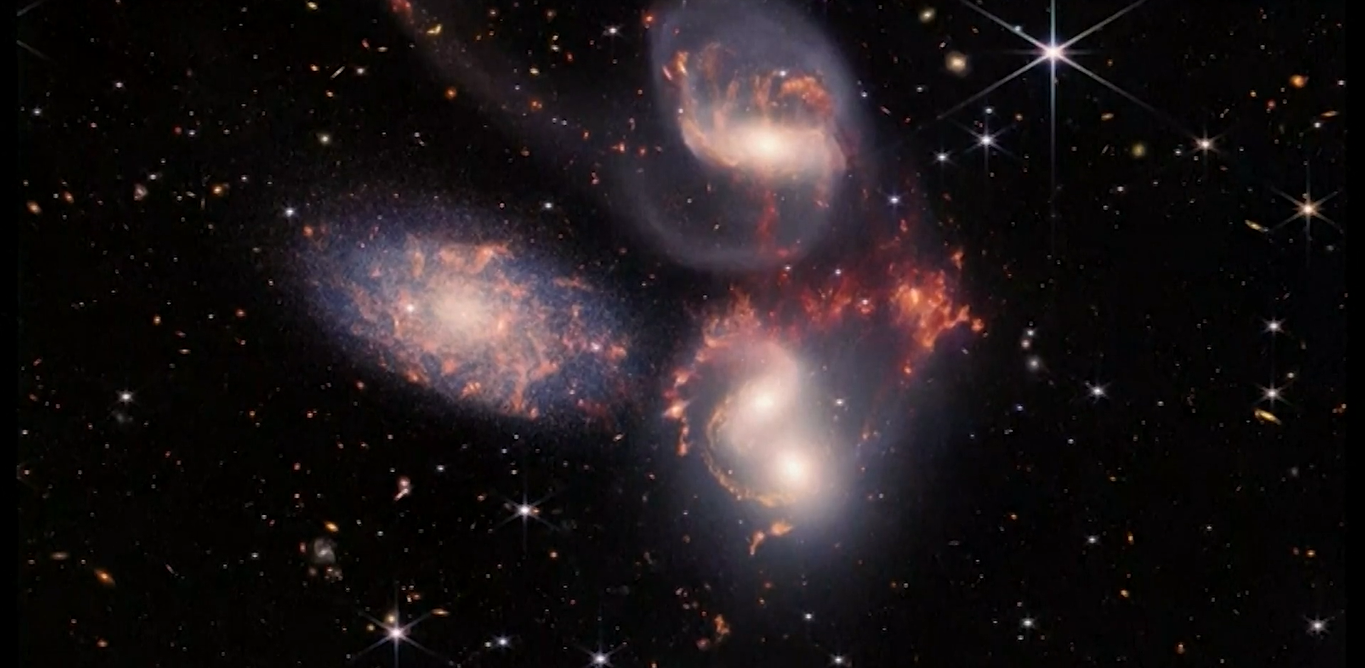Our universe contains about 200 billion galaxies. These galaxies are not uniformly distributed – under the pull of gravity, they lump into clusters, and the clusters form superclusters. Between these clusters, galaxies align along thin threads, the “galactic filaments”, which can be several hundred million light-years long. Galactic clusters and filaments are surrounded by voids that contain very little matter. Altogether, the cosmic web looks somewhat like a human brain.
To be more precise, the distribution of matter in the universe looks a little like the “connectome,” the network of nerve connections in the human brain. Neurons in the human brain, too, form clusters, and they connect by axons, that are long nerve fibers which send electrical impulses from one neuron to another.
The resemblance between the human brain and the universe is not entirely superficial; it has been rigorously analyzed in a 2020 study by the Italian astrophysicist Franco Vazza and neuroscientist Alberto Feletti. They calculated how many structures of different sizes are in the human brain’s connectome and in the cosmic web, and reported “a remarkable similarity”.
Brain samples on scales below about 1 millimeter and the distribution of matter in the universe up to about 300 million light years, they found, are structurally similar. Could it be, then, that the universe is a giant brain in which our galaxy is merely one neuron? Maybe we are witnessing its self-reflection while we pursue our own thoughts?
How 24 British rabbits took over Australia
Sure, we don’t know what consciousness is. But we do know that the only things we’re reasonably confident can think – brains – have a lot of connections, and send a lot of information back and forth through those connections. Even leaving aside that we don’t understand consciousness, high connectivity and rapid signaling seem conductive to thinking. That the universe is structurally similar to the brain raises the question whether it has similar thinking capacities.
Too big to think
The universe, however, is different from the human brain in a number of ways, notably because it expands, and its expansion is speeding up. If galaxy clusters were the universe’s neurons, then they’d be flying apart from each other with ever increasing speed – and they have been doing so for some billion years already.
Read more: TIME
Ask me anything
Explore related questions





